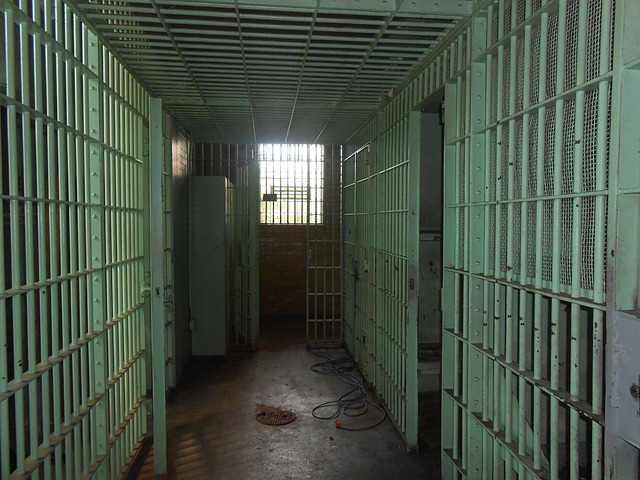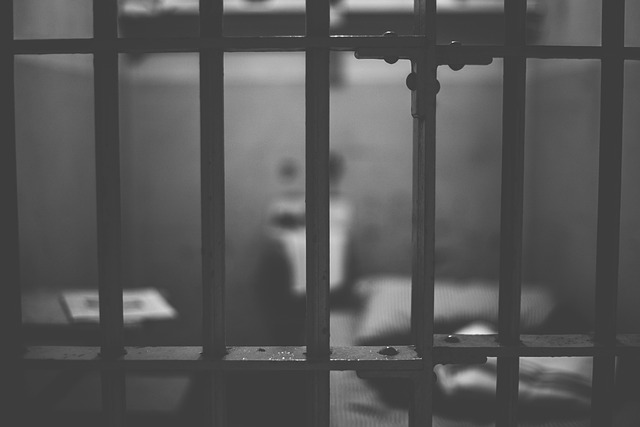Incarceration is a broader term that refers to any kind of detention or confinement, including house arrest, community service, or even electronic monitoring. On the other hand, imprisonment specifically refers to being locked up in a jail or prison.
The definition of incarceration
(Image by James Timothy Peters from Pixabay )

Incarceration refers to the act of putting someone in jail or prison as a form of punishment for committing a crime. It is typically used as an umbrella term to describe any type of confinement, whether it’s short-term or long-term.
The purpose of incarceration is multifold. First and foremost, it serves as a deterrent against criminal behavior by making individuals think twice before breaking the law. Additionally, it helps to protect society from dangerous criminals who may pose a threat to others if left free.
Incarceration can take many forms depending on the type and severity of the crime committed. Some examples include house arrest, probation, community service, and detention centers for minors.
However, one commonality among all forms of incarceration is that they involve taking away an individual’s freedom temporarily or permanently. This can have significant psychological effects on both inmates and their families alike.
While incarceration is meant to serve justice by punishing criminals for their actions, it also has broader societal implications that need to be considered when implementing this form of punishment.
The definition of imprisonment
(Image by Ichigo121212 from Pixabay )

Imprisonment is a legal consequence for committing a crime in which the offender is confined to a correctional facility or prison. This means they lose their freedom and are not allowed to leave the premises without permission from authorities.
In most countries, imprisonment is viewed as one of the harshest punishments that could be given to an individual. It involves more than just losing one’s freedom, but also being stripped of certain rights such as voting privileges and limited access to education and job opportunities.
The duration of imprisonment can vary depending on the severity of crimes committed, with some sentences ranging from months to years or even a lifetime. The conditions within prisons can also differ widely between countries, with some providing better facilities than others.
One important aspect of imprisonment is that it aims at rehabilitating offenders through educational programs, counseling services, and other forms of therapy. However, critics argue that incarceration often perpetuates criminal behavior by isolating individuals from society for extended periods, leading them towards further violence instead of rehabilitation.
While imprisonment serves as punishment for those who have broken laws, it still remains controversial due to its effectiveness in reducing crime rates and its potential negative impact on inmates’ lives.
Incarceration Vs. Imprisonment – Key differences
Incarceration and imprisonment are terms that are often used interchangeably, but they have distinct differences. Incarceration is the broader term for all forms of confinement, including prison, jail, detention centers, and other correctional facilities. On the other hand, imprisonment refers specifically to being confined in a prison or penitentiary.
The key difference between incarceration and imprisonment lies in their duration. Imprisonment typically involves serving a sentence handed down by a court of law after conviction for a crime. The length of time can range from months to years or even life depending on the severity of the offense committed.
In contrast, incarceration can occur for shorter periods such as pre-trial detention or temporary holding while awaiting transfer to another facility or release on bail. It may also be part of an alternative sentencing program like community service or house arrest.
Another important distinction is that prisons usually hold convicted felons serving sentences longer than one year while jails generally hold individuals who are awaiting trial or those sentenced up to one year only.
Understanding the difference between these two terms is crucial not only for legal purposes but also when discussing criminal justice reform efforts aimed at reducing mass incarceration rates in America’s correctional system today.
Examples of Incarceration
Incarceration is a form of punishment that involves confinement in a prison or jail. Here are some examples of incarceration:
Jailing for unpaid fines: Some people may be incarcerated for failing to pay traffic tickets, court fees, or other fines.
Immigration detention: Individuals who enter the United States illegally may be detained and incarcerated until their immigration status is resolved.
Pretrial detention: People who have been accused of crimes but not yet convicted may be held in custody until trial.
Juvenile detention: Minors who commit offenses may be incarcerated in juvenile facilities as part of their sentence.
Imprisonment for non-violent crimes: White-collar criminals such as embezzlers and fraudsters can also face incarceration for their actions.
It’s important to note that while incarceration can serve as a deterrent and punishment for criminal activity, it also has significant social costs, including the separation from family members and limited access to education or job opportunities during and after release from prison.
Examples of Imprisonment
Imprisonment is a legal punishment that involves confinement in a jail, prison or correctional facility for a certain period. Here are some examples of imprisonment:
Firstly, if someone commits a crime such as theft, assault or murder they may be sentenced to imprisonment for several years. This means they will spend their time in an institution specifically designed for long-term detention and rehabilitation.
Secondly, individuals who violate the terms of their parole or probation can also face imprisonment. The court might decide that the person has failed to meet certain conditions like attending counseling sessions or paying restitution fees.
Thirdly, those who refuse to pay fines imposed on them by courts may also receive short-term imprisonment sentences until they fulfill their obligation.
Political prisoners are often subjected to unjustified and indefinite periods of detention without trial. These individuals have been imprisoned because of their beliefs rather than any criminal activity.
There are many different reasons why people may be imprisoned; it could range from committing crimes against society to refusing to comply with orders from authorities.
Featured Image By – PublicDomainPictures from Pixabay








